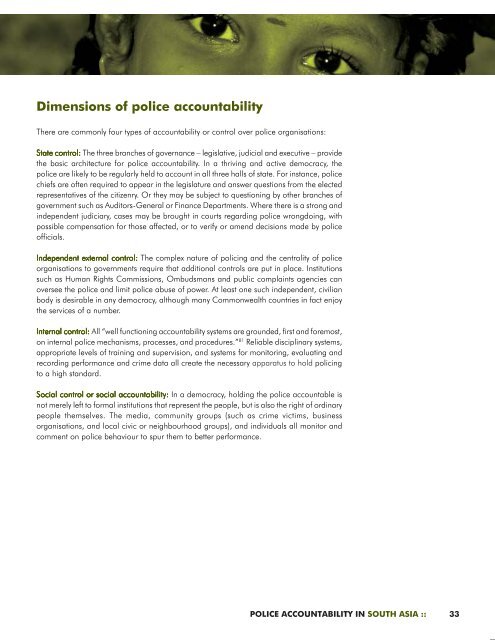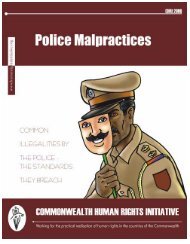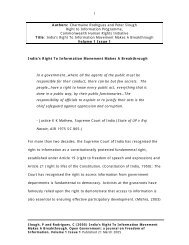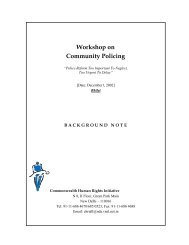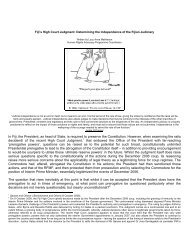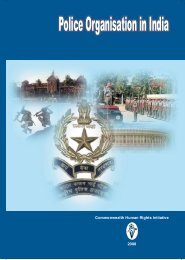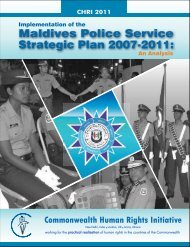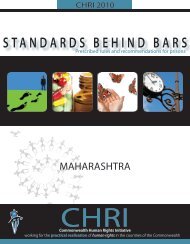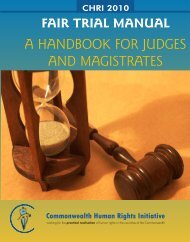Feudal Forces: Democratic Nations - Police Accountability in
Feudal Forces: Democratic Nations - Police Accountability in
Feudal Forces: Democratic Nations - Police Accountability in
You also want an ePaper? Increase the reach of your titles
YUMPU automatically turns print PDFs into web optimized ePapers that Google loves.
Dimensions of police accountabilityThere are commonly four types of accountability or control over police organisations:State control: The three branches of governance – legislative, judicial and executive – providethe basic architecture for police accountability. In a thriv<strong>in</strong>g and active democracy, thepolice are likely to be regularly held to account <strong>in</strong> all three halls of state. For <strong>in</strong>stance, policechiefs are often required to appear <strong>in</strong> the legislature and answer questions from the electedrepresentatives of the citizenry. Or they may be subject to question<strong>in</strong>g by other branches ofgovernment such as Auditors-General or F<strong>in</strong>ance Departments. Where there is a strong and<strong>in</strong>dependent judiciary, cases may be brought <strong>in</strong> courts regard<strong>in</strong>g police wrongdo<strong>in</strong>g, withpossible compensation for those affected, or to verify or amend decisions made by policeofficials.Independent external control: The complex nature of polic<strong>in</strong>g and the centrality of policeorganisations to governments require that additional controls are put <strong>in</strong> place. Institutionssuch as Human Rights Commissions, Ombudsmans and public compla<strong>in</strong>ts agencies canoversee the police and limit police abuse of power. At least one such <strong>in</strong>dependent, civilianbody is desirable <strong>in</strong> any democracy, although many Commonwealth countries <strong>in</strong> fact enjoythe services of a number.Internal control: All “well function<strong>in</strong>g accountability systems are grounded, first and foremost,on <strong>in</strong>ternal police mechanisms, processes, and procedures.” 81 Reliable discipl<strong>in</strong>ary systems,appropriate levels of tra<strong>in</strong><strong>in</strong>g and supervision, and systems for monitor<strong>in</strong>g, evaluat<strong>in</strong>g andrecord<strong>in</strong>g performance and crime data all create the necessary apparatus to hold polic<strong>in</strong>gto a high standard.Social control or social accountability: In a democracy, hold<strong>in</strong>g the police accountable isnot merely left to formal <strong>in</strong>stitutions that represent the people, but is also the right of ord<strong>in</strong>arypeople themselves. The media, community groups (such as crime victims, bus<strong>in</strong>essorganisations, and local civic or neighbourhood groups), and <strong>in</strong>dividuals all monitor andcomment on police behaviour to spur them to better performance.POLICE ACCOUNTABILITY IN SOUTH ASIA :: 33


